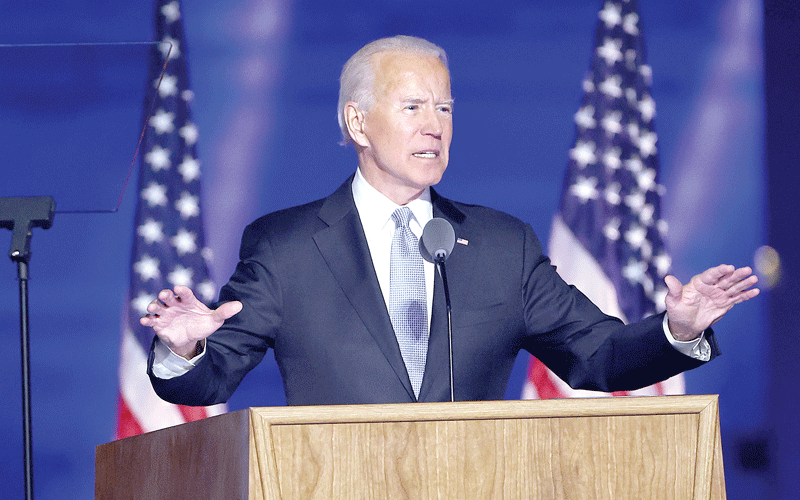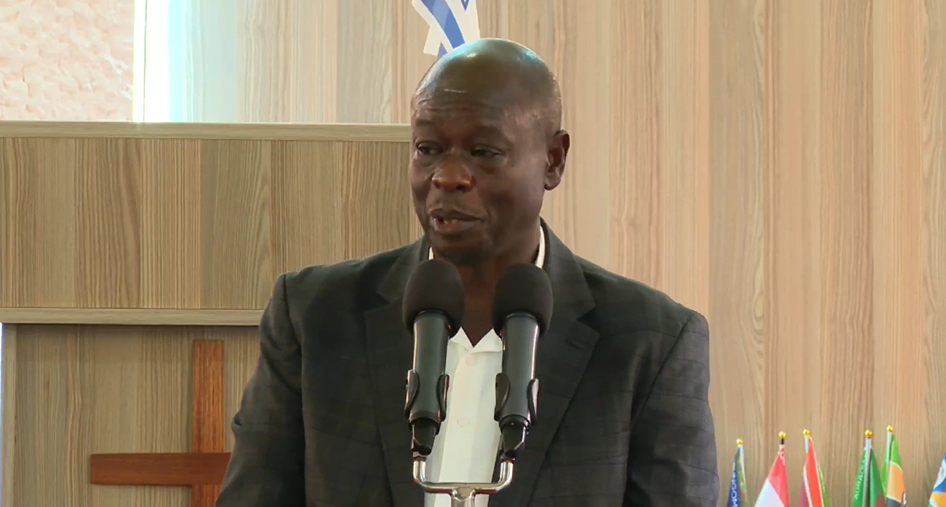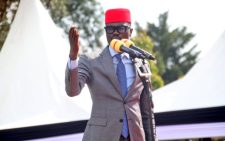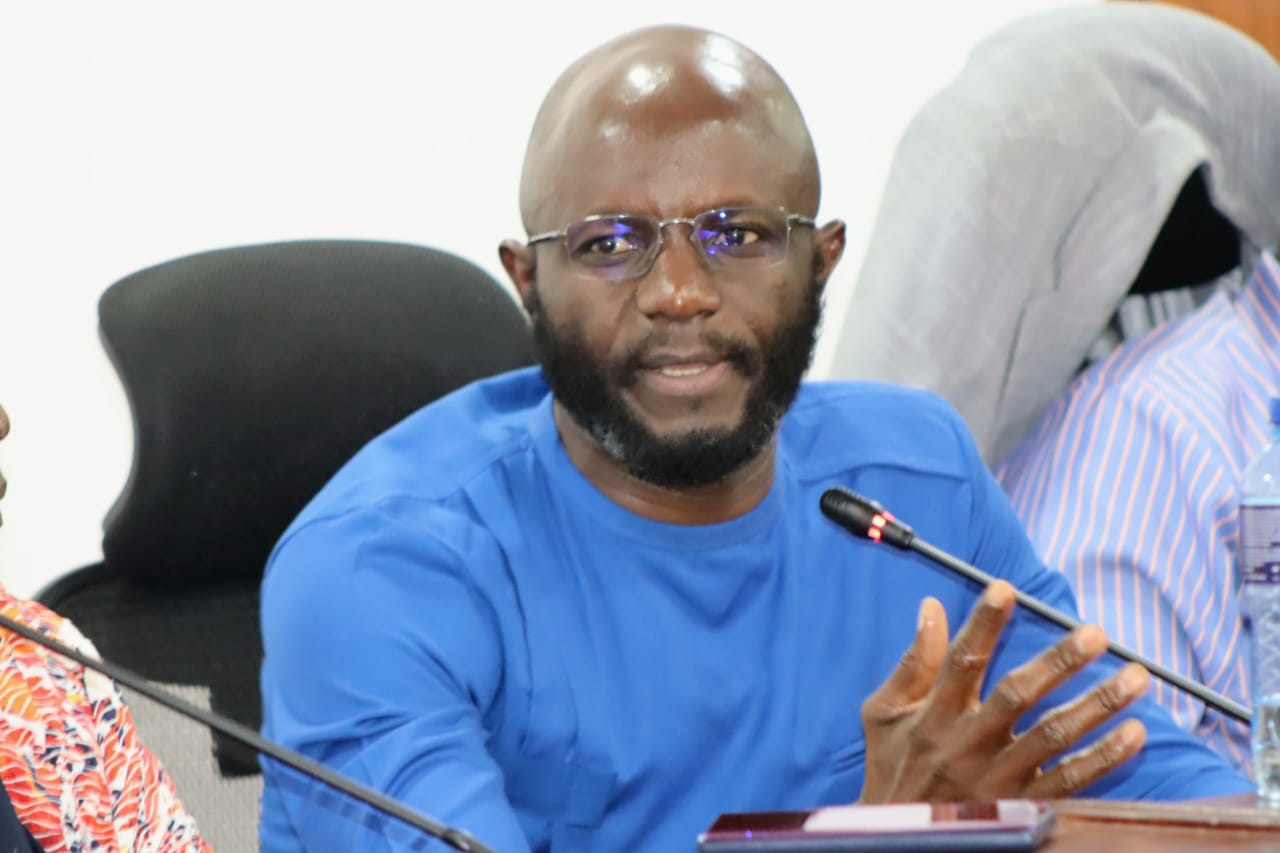What Biden’s win means for Kenya, Africa

Kenya, like the rest of the world, watched with fascination the outcome of the US elections.
Anxiety and expectations were high as results from different American states trickled in.
President Donald Trump is perhaps best remembered locally for deriding the African continent as “shithole” countries and calling out corrupt leaders at every turn.
On the other hand, his challenger, Joe Biden, who served as Barack Obama’s vice-president, has been touted as a friend of Kenya.
But what exactly does a Biden win in the hotly contested election portend for Kenya and Africa? We put this question to a cross-section of experts.
Prof Peter Kagwanja, the CEO of African Policy Institute, cast a dark shadow over Biden’s election victory and what it portends for Kenya, maintaining that Nairobi was better off with Trump at the White House.
“Whenever there is a Republican or a Tory (the British Conservative Party) in office, we seem to have better relations leading to better productivity.
It is under Trump that a Kenyan president paid a state visit to America complete with a 21-gun salute.
The only other time was during the administration of Ronald Reagan, another Republican,” he stated.
He also cited the deal allowing the national carrier, Kenya Airways, to start direct flights between Nairobi and New York.
“For the first time in the history of US-Africa relations, America is working towards having bilateral relations with a specific African country, and that is Kenya, which has actually made us the envy of many African nations who accuse us of abandoning pan Africanism,” Kagwanja noted.
Human rights
He argued that Kenya had benefited immensely from American support in the war against Al Shabaab under President Trump, warning that some of these gains could be reversed under the Biden administration.
“We will see more of that gospel of democracy, human rights and the fight against corruption; it is as if we were not fighting corruption during Trump’s time.
The only difference is that under Trump, the US did not lord it over us,” he said.
However, former Kenyan ambassador to China Julius Sunkuli welcomed Biden’s win, saying the Democratic Party administration portends greater opportunities for Kenya and Africa as a whole.
Sunkuli observed that under Trump, America’s policy towards Kenya, and Africa was unpredictable.
“With Biden’s election, we expect a more predictable and consistent policy towards Kenya and Africa at large, especially in the area of trade,” said the former diplomat.
“The statement by the Mayor of Paris aptly captures the moment because he told Americans: ‘Welcome back to the world’.
This is because under Trump, America was more inward looking and had as good as severed ties with almost all global organisations, from WTO to WHO, name them.
With Biden, we are likely to see policies which look outwardly towards the world and that is good for Kenya.”
According to Macharia Munene, a professor of diplomacy and History at USIU-Africa, Biden is likely to be more sympathetic to Kenya having been former President Barack Obama’s deputy.
“Obama was a friend of Kenya and Biden has a bit of an Obama in him; we are likely to see an improved relationship between America and Kenya based on mutual understanding rather than demands.”
“We are also likely to see a reduction of tension all over the world because Biden comes out as a civilised and sober president, he is not as forceful as Donald Trump,” added Prof Munene.
However, according to a public official who did not wish to be identified discussing US-Kenya relations, Republican governments have generally been softer or more forthcoming in development and other areas.
Development aid
He cited the multi-billion shilling HIV/Aids funding initiated by former US President George W. Bush.
And like Prof Kagwanja, the official said Democrats have largely been associated with human rights campaigns with less emphasis on development aid. In any case, the official added, America is currently besieged by a number of critical internal problems, from Covid-19 which has ravaged the world’s largest economy to the divisive race relations campaigns which may pre-occupy the Biden administration for long before turning his attention outside.
On the global front Biden is likely to readjust the foreign policy to view, in his words, opponents as not enemies.
Writing in The Conversation, analysts Brian Purnell and Neta Crawford say Biden has signalled he will do three things to reset America’s foreign policy.
First, Biden will change the tone of US foreign relations. The Democratic Party platform called its section on military foreign policy “renewing American leadership” and emphasised diplomacy as a “tool of first resort”.
Biden seems to sincerely believe in diplomacy and is intent on repairing relations with US allies that have been damaged over the last four years.
Conversely, while Trump was, some say, too friendly with Russian President Vladimir Putin, calling him a “terrific person,” Biden will likely take a harder line with Russia, at least rhetorically, according to the two.
This change in tone will also likely include rejoining some of the treaties and international agreements that the United States abandoned under the Trump administration.
The most important of these include the Paris Climate Agreement, which the US officially withdrew from on November 4, and restoring funding to the United Nation’s Intergovernmental Panel on Climate Change.
Second, in contrast to the large increases in military spending under Trump, President-elect Biden may make modest cuts in the US military budget.
Although he has said that cuts are not “inevitable” under his presidency, Biden has hinted at a smaller military presence overseas and is likely to change some priorities at the Pentagon by, for instance, emphasising high-tech weapons.
If the Senate – which must ratify any treaties – flips to Democrats’ control, the Biden administration may take more ambitious steps in nuclear arms control by pursuing deeper cuts with Russia and ratifying the Comprehensive Test Ban Treaty.
Third, the Biden administration will likely continue some Bush, Obama and Trump foreign policy priorities.
Specifically, while a Biden administration will seek to end the war in Afghanistan, the administration will keep a focus on defeating the Islamic State and al-Qaida.
Biden has said that he would reduce the current 5,200 US forces in Afghanistan to 1,500-2,000 troops operating in the region in a counterterrorism role.
The Biden administration is likely to continue the massive nuclear weapons modernisation and air and naval equipment modernisation programmes begun under the Obama administration and accelerated and expanded under Trump, if only because they are popular with members of Congress who see the jobs they provide in their states, Purnell and Crawford argue.
And like the Bush, Obama and Trump administrations, the Biden administration will prioritise the economic and military threats it believes are posed by China.
But, consistent with its emphasis on diplomacy, the Biden administration will likely also work more to constrain China through diplomatic engagement and by working with US allies in the region.
On matters race, the next four years under a Biden administration will likely see improvements in racial justice.
But to many, it will be a low bar to clear: President Donald Trump downplayed racist violence, egged on right-wing extremists and described Black Lives Matter as a “symbol of hate” during his four-year tenure.
Indeed, according to polls, most Americans agree that race relations have deteriorated under Trump.
One area that the Biden administration will surely address is policing and racial justice.
The Justice Department can bring accountability to police reform by returning to practices the Obama administration put in place to monitor and reform police departments, such as the use of consent degrees.
More difficult reforms require redressing how mass incarceration caused widespread voter disenfranchisement in Black American and Latino communities.
Racial justice
“My administration will incentivise states to automatically restore voting rights for individuals convicted of felonies once they have served their sentences,” Biden told The Washington Post.
The killing of George Floyd earlier this year reinvigorated talk of addressing systemic racial discrimination through fundamental changes in how police departments hold officers accountable for misconduct and excessive force.
It is unclear how far President-elect Biden will walk down this road. But evoking the words of the late civil rights icon and Congressman John Lewis, he at least suggested at the Democratic National Convention that America was ready to do the hard work of “rooting out systemic racism”.
Making progress fighting systemic racism will be a slow, uphill battle. A more immediate benefit to communities of colour could come through Biden’s Covid-19 pandemic response – the Trump administration’s failure to stanch the spread of the coronavirus has led to deaths and economic consequences that have disproportionately fallen on racial and ethnic minorities.
On matters of race relations in the US, most Americans would agree that the era of Trump saw the picture worsen. The good news for Biden as president is there is nowhere to go but up.










